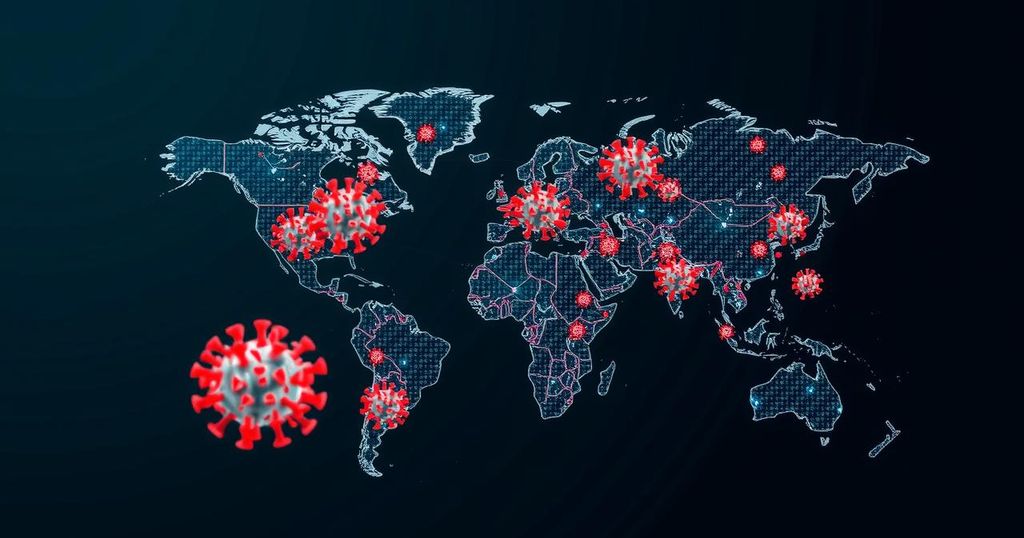Approximately 4.5 billion people lack adequate access to essential healthcare services globally. Recent outbreaks of mpox and cholera, alongside a new COVID-19 variant, underscore the risks of future pandemics. Dr. Ahmed Ogwell emphasizes the need for global cooperation and renewed investment in healthcare to address these challenges, hindered by geopolitical conflicts and the impacts of climate change.
In the contemporary landscape of global health, approximately 4.5 billion individuals lack sufficient access to essential healthcare services, a grave concern highlighted by the World Health Organization (WHO). Recent global health crises, including over 100,000 cases of mpox, a cholera outbreak in Sudan affecting nearly 15,000, and the emergence of new COVID-19 variants, bring forth serious implications regarding our preparedness for future pandemics. During the 2024 World Economic Summit, alarming discussions revealed that antimicrobial resistance (AMR) has ascended to become the leading global cause of death, with predictions suggesting that it may claim 10 million lives by 2050. Furthermore, a recent report on the impacts of climate change on human health warns of an additional 14.5 million deaths and $12.5 trillion in economic losses by 2050 due to climate-related health issues. Dr. Ahmed Ogwell, a prominent figure in global health strategy, articulates that the world presently faces a moderate risk level for disease outbreaks, necessitating enhanced surveillance and collective action among nations. Following the lessons of the COVID-19 pandemic, he laments that many preventative measures, such as wearing masks and hand hygiene, have been neglected, undermining the world’s ability to tackle emerging infections effectively. The transmission dynamics of mpox, primarily through close contact, illustrate how a localized outbreak can swiftly escalate into a global health crisis. As Dr. Ogwell states, “an outbreak anywhere is a risk of an outbreak everywhere.” He emphasizes the need for international solidarity to address these threats, as the geopolitical landscape, characterized by conflicts and humanitarian crises, severely hinders collaborative global health responses. Climate change exacerbates existing health vulnerabilities as diseases surface in previously unaffected regions, with natural disasters promoting the conditions necessary for outbreaks. Dr. Ogwell’s observations underscore the urgent need for a comprehensive approach that balances healthcare commercialization with equitable access for vulnerable populations. Governments must increase their investment in public health to ensure the availability of quality healthcare for all. In summary, while we confront a multitude of health challenges, the necessity for global cooperation, adequate investment in healthcare, and adherence to learned lessons from past pandemics is imperative to bolster our defenses against future threats.
The discourse surrounding global health preparedness has gained momentum, particularly in light of recent health emergencies such as COVID-19 and outbreaks of diseases like mpox and cholera. The WHO highlights a severe gap in healthcare access for billions, raising questions about the readiness of health systems to respond effectively to emerging pandemics. Current global health threats, amplified by antimicrobial resistance and climate change, necessitate renewed commitment from governments and health organizations to strengthen healthcare infrastructure and foster international collaboration.
The world remains in a precarious position regarding health preparedness, with significant gaps in healthcare access and a myriad of emerging health threats. Emphasizing global cooperation and robust investment in public health infrastructure is essential to safeguard against future pandemics. The lessons from COVID-19 must translate into actionable strategies that prioritize public health, equitable access to care, and proactive measures against emerging infectious diseases.
Original Source: www.aljazeera.com






